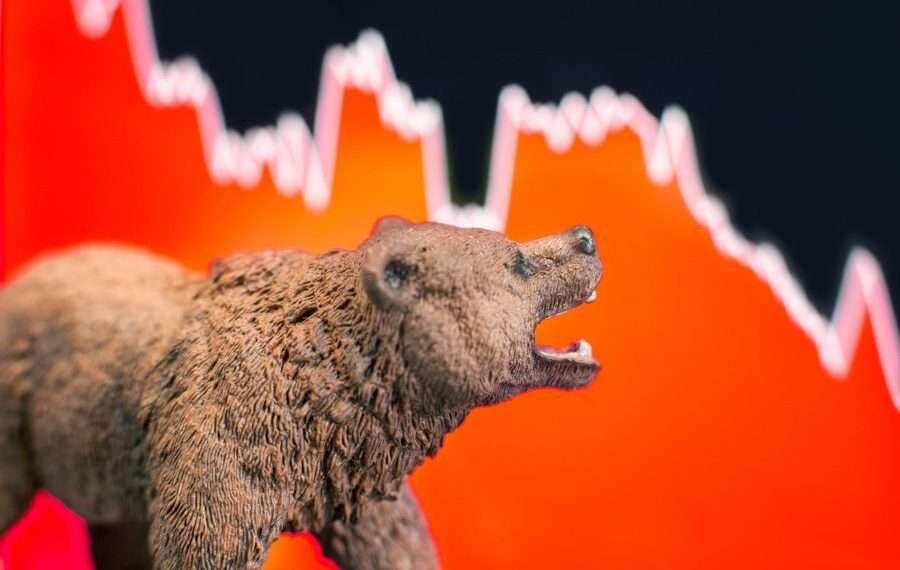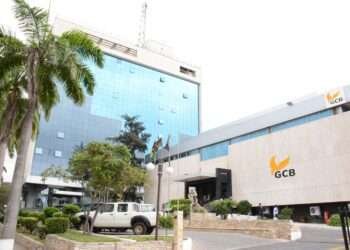In the world of finance, the ebb and flow of markets often hinge on the actions of profit-takers. Recently, the Ghana Stock Exchange (GSE) witnessed such a phenomenon as profit-takers swooped in, causing ripples across various investment vehicles.
Notably, the NewGold Exchange Traded Fund (ETF) found itself ensnared in this whirlwind, succumbing to the pressures of profit-taking investors.
The GSE, a vital hub for trading securities in Ghana, serves as a barometer of economic sentiment and investor confidence. However, like any exchange, it is susceptible to fluctuations driven by investor behavior. In this instance, profit-taking emerged as a dominant force, impacting the performance of the NewGold ETF.
Consequently, the NewGold ETF (GLD) experienced a significant downturn in its share price, reflecting the impact of profit-taking activities on the Ghana Stock Exchange (GSE).
At the close of the trading session, GLD suffered a notable 3.53% depreciation, ending the day at GHS305.80 per share. This marked a sharp drop of GHS11.20 from its previous closing price of GHS317.00.
Despite this setback, it’s important to note that NewGold ETF commenced the year with a share price of GHS218.50. Impressively, it has since surged by 40%, showcasing robust performance and positioning itself as the third-best performer on the GSE in terms of year-to-date gains.
Analyzing its trading activity over the past three months (Jan 22 – Apr 23, 2024), NewGold ETF emerges as the seventh most traded stock on the GSE. During this period, GLD witnessed a total trading volume of 384,721 shares valued at GHS115 million. On average, approximately 6,107 shares were traded per session. Notably, the ETF reached a volume peak of 97,566 shares traded on April 3 within the same timeframe.
As investors liquidate their positions to secure profits, selling pressure mounts, leading to downward pressure on asset prices. In the case of the NewGold ETF, this phenomenon manifested in a decline in its market value, as profit-taking investors offloaded their holdings.
The trading data highlights the significance of NewGold ETF within the GSE ecosystem, highlighting both its liquidity and investor interest. Despite the recent downturn, its overall performance remains impressive, reflecting broader market trends and investor sentiment towards gold and precious metal investments.
NewGold ETF, a renowned investment instrument, tracks the price of gold and offers investors exposure to the precious metal without the need for physical ownership. As a safe-haven asset, gold often attracts investors during times of economic uncertainty or market volatility.
Trading Activity and Market Value
At the close of trading on the Ghana Stock Exchange (GSE), the market witnessed robust activity, with a total of 1,952,704 shares changing hands, representing a substantial market value of GHS 7,784,243.65.
Among the most traded stocks, MTN Ghana led the pack with an impressive volume of 1.91 million shares, followed by NewGold ETF with 15,306 shares, CAL Bank with 13,998 shares, and Clydestone Ghana with 6,011 shares.
Examining the performance of GSE market indices, the benchmark GSE Composite Index (GSE-CI) remained unchanged, maintaining its position at 3,504.34. Although the index recorded a 4-week loss of 0.96%, it still boasts an impressive year-to-date gain of 11.95%, showcasing the resilience and overall positive trajectory of the Ghanaian stock market.
Similarly, the GSE Financial Stocks Index (GSE-FSI) held steady at 2,044.52 points, indicating a 4-week gain of 2.49% and a year-to-date gain of 7.52%. This highlights the strength of financial stocks within the GSE and their contribution to the market’s overall performance.
With a current market capitalization of GHS 78.3 billion, the Ghana Stock Exchange continues to play a crucial role in the country’s financial sector, providing investors with opportunities for growth and diversification.
All in all, the Intrusion of profit takers into the GSE reflects a broader trend of investors seeking to capitalize on gains accrued from their investments. This behavior is not inherently negative; it is a natural aspect of market participation driven by the pursuit of financial gain.
Nevertheless, the consequences of profit-taking can reverberate across the investment sector, affecting asset prices and market sentiment.
While it can signal short-term fluctuations and market corrections, it also presents opportunities for astute investors to enter positions at favorable prices.
READ ALSO: Disparity In Media Exposure Limits Influence Of Minor Political Parties























